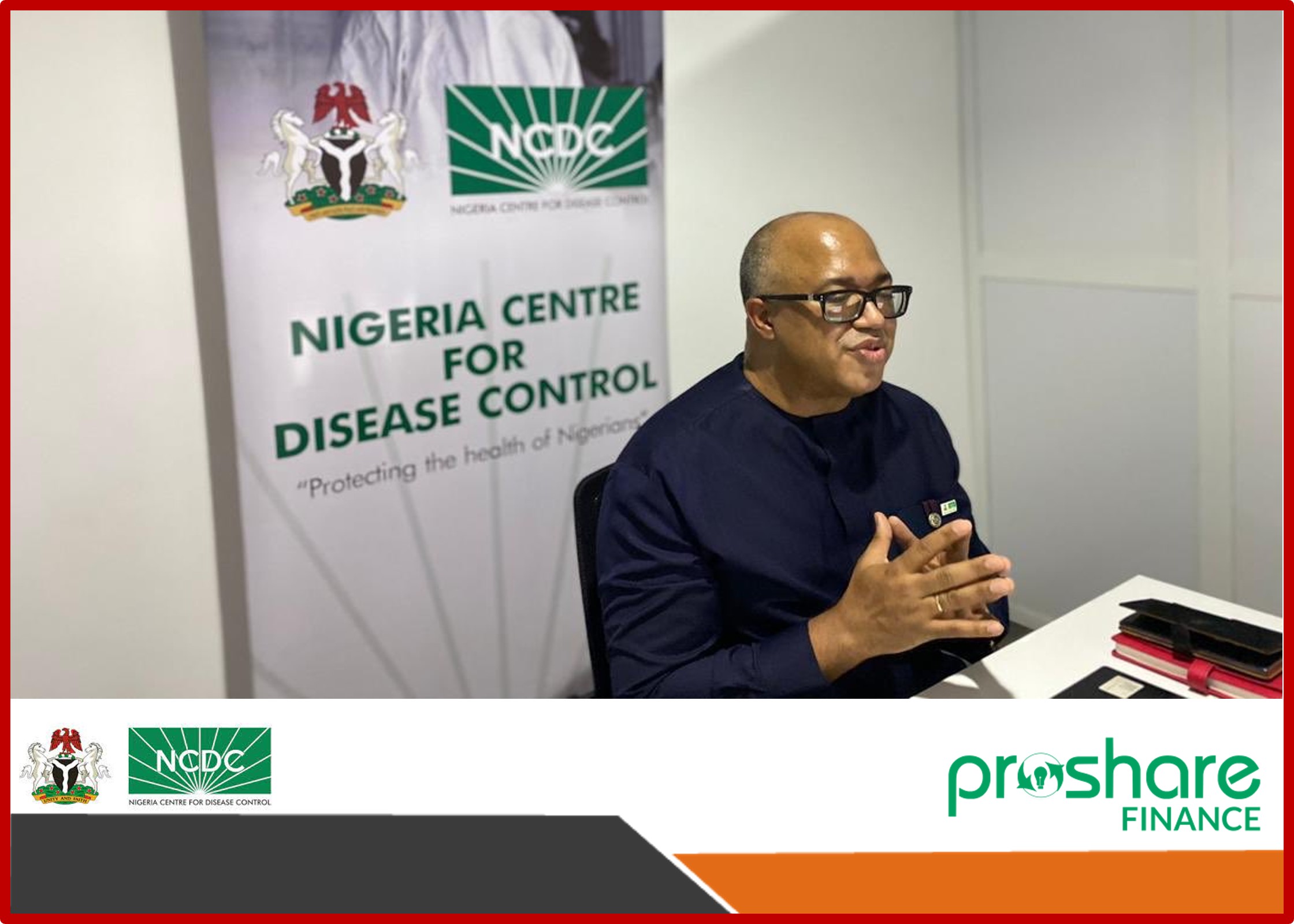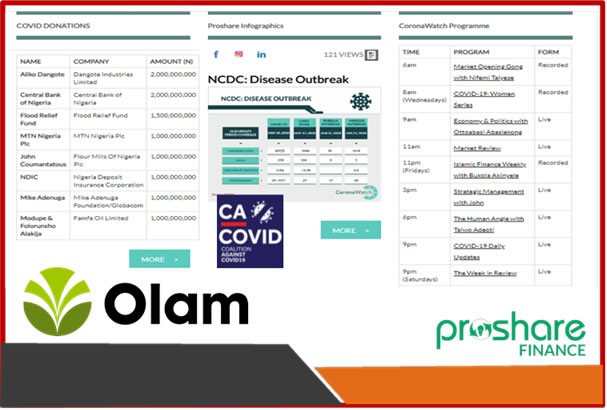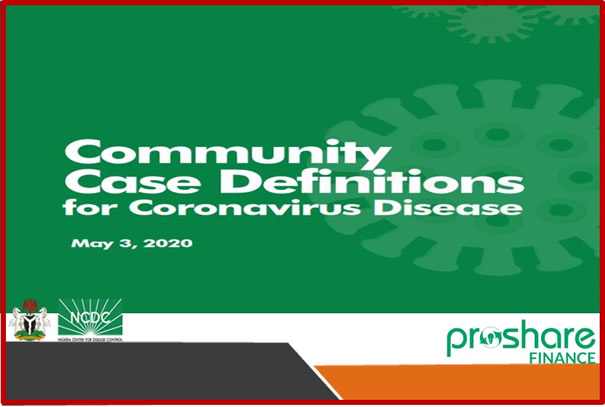The strategy is intended to improve preparedness and reinforce health security in Nigeria
Given that genomic sequencing technology enhanced the fight against COVID-19 globally, Nigeria is working on a strategy to integrate other infectious diseases into the genomic surveillance in the country.
The strategy is intended to improve preparedness and reinforce health security in Nigeria. These efforts are in line with the WHO Global genomic surveillance strategy for pathogens with pandemic and epidemic potential 2022–2032 that provides the procedure to strengthen and scale up genomic surveillance around the world.
Contributing to the plan, the Federal Ministry of Health (FMOH), with support from the World Health Organization (WHO) recently conducted a situation analysis of COVID-19 genomic surveillance in the country.
Strengthening sequencing capacity
The venture was carried out by a team of technical experts from WHO’s Africa Regional and Nigeria Country Offices as well as the Nigeria Centre for Disease Control (NCDC) and other partners as part of efforts to reinforce genomic surveillance in the African region.
In his first meeting with the delegates for the mission, the WHO Country Representative in Nigeria, Dr Walter Kazadi Mulombo, reiterated the importance of expanding sequencing capacity in Africa.
He said beefing-up genomic surveillance to improve biosecurity in Nigeria and the entire continent is one of WHO priorities.
“Genomic surveillance is critical for early identification of emerging pathogens as well as preparation for any future outbreaks. Nigeria is a large country, and if it can get it right with genomic sequencing, we will become well prepared in informing diagnostics, vaccine production, and biosecurity consciousness.
With the reoccurrence of Lassa fever, monkeypox, and other infectious diseases, we need to strengthen our sequencing capacity beyond COVID-19 to other diseases, hence the need to consider other potential laboratories and strategies to expand its sequencing capacity,” he said.
Strengthening capacities
During the visit, a stakeholder meeting was convened by FMOH and WHO to underscore the support and to review surveillance and testing guidelines in the country.
Some of the partners present at the meeting included: Nigeria Centre for Disease Control (NCDC), the United State Centre for Disease Control (US-CDC), the Clinton Health Access Initiative (CHAI), the Institute of Human Virology (IHVN), Resolve to save life (RTSL), AFENET, WHO, National Laboratory Technical Working Group, UK Health Security Agency (UKHSA), GF-NACA-CR-19 and GF-NACA-RSSH.
Additionally, the team visited five sequencing laboratories: the National Reference Laboratory (NRL), Nigerian Institute of Medical Research (NIMR), Central Public Health Laboratory (CPHL), Lagos, the African Centre of Excellence for the Genomics of Infectious Disease (ACEGID) and Usmanu Danfodiyo University Teaching Hospital (UDUTH) as well as some selected PCR labs supporting sample referral system in the country.
Buttressing the importance of the operation, the WHO AFRO mission Lead, Dr Gumede-moeletsi Nelisiwe, said the mission is part of WHO’s strategy to strengthen the sequencing capacities and surveillance in Africa to promptly detect variants of concern (VOC) and the variant of interest (VOI) through PCR multiplex testing and genomic sequencing.
“The visit seeks to enhance a working knowledge of sequencing infrastructure in the country and sample referral and processing system. This will assist to identify and engage with financial and technical partners active in the field of genomic surveillance to understand the scope of support and interventions needed for scaling up the genomic sequencing capacity in Nigeria, she said.
Since 2021, the WHO Country Office in Nigeria has been working closely with FMOH to enhance genomic surveillance with financial support from the African Development Bank and Health Pool Fund donors, including the European Union and the Foreign, Commonwealth and Development Office (FCDO).
Meanwhile, the Chief Molecular Bioengineer NCDC NRL, Dr Emeka Ndodo, said that NCDC has been at the forefront of supporting all the sub-national entities in health response and the facilities visited have the tendencies to improve pandemic preparedness in the country.
Expanded private partnership
During a stop at the African Centre of Excellence for the Genomics of Infectious Disease (ACEGID), a private institution located in Osun state, southwest region, the Director of ACEGID, Professor Christian Happi, applauded the initiative to expand genomic surveillance in Nigeria and the African continent at large.
He said ACEGID has expanded its sequencing activities beyond COVID-19 to other infectious diseases such as cholera, Lassa fever and others.
ACEGID is one of the regional repository and bioinformatics centres used by WHO and Africa CDC to provide sequencing, data analysis and other technical support services to neighbouring countries and other countries in their sub-regions.
During the early stages of the pandemic, only seven countries had sequencing capacity, and other countries had to rely on the sample referral system. But with the generous support of WHO, Africa CDC and other stakeholders, Nigeria and 31 other countries now have the sequencing capacity to support their national public health laboratories.
Nigeria has contributed immensely to the COVID-19 genomic sequencing database with about 7,000 sequences on the Global Initiative on Sharing Avian Influenza Data (GISAID).
 Lagos, NG • GMT +1
Lagos, NG • GMT +1











 235 views
235 views













 Sponsored Ad
Sponsored Ad
 Advertise with Us
Advertise with Us









